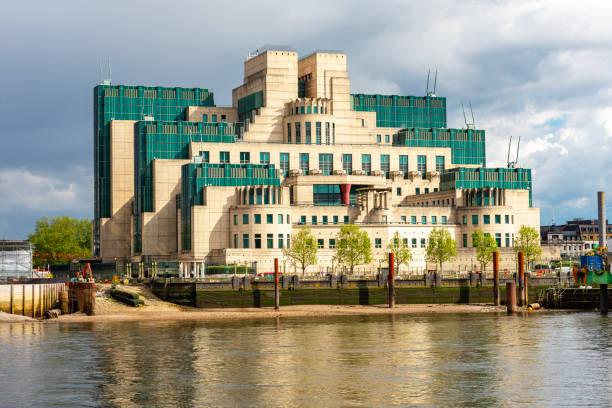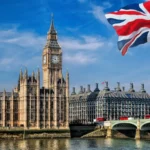London, October 16, 2025 — The head of the United Kingdom’s intelligence community has issued a stark warning about the growing threats facing the country, citing increasing aggression from Russia, covert cyber activity from Iran, and a resurgence of international terrorist networks seeking to exploit global instability.
Speaking at a security briefing in London today, MI5 Director General Sir Ken McCallum emphasized that the UK must remain vigilant amid a rapidly evolving global threat landscape. “Our adversaries are becoming more sophisticated, more opportunistic, and more willing to challenge international norms,” McCallum said. “The threats we face today are no longer isolated—they are interconnected and multi-domain, spanning cyber, espionage, disinformation, and terrorism.”
Rising Hostility from Russia
The briefing highlighted Russia as the most persistent and immediate state-based threat to UK national security. British intelligence has detected renewed cyber campaigns targeting critical infrastructure, energy systems, and political institutions.
According to McCallum, Russian intelligence operatives are “doubling down on covert influence efforts” aimed at undermining Western unity and trust in democratic institutions. The Kremlin’s ongoing war in Ukraine has also intensified its hybrid warfare strategy—blending traditional espionage with cyberattacks and disinformation campaigns across Europe.
“Our data show that Russia’s intelligence services have expanded operations in Europe,” McCallum said. “They are recruiting online, exploiting social media, and targeting British citizens with false narratives about our government’s support for Ukraine.”
UK authorities have increased counterintelligence operations, working closely with allies in NATO and the EU. Earlier this year, several suspected Russian spies were arrested in London and Manchester in connection with attempts to collect information on British defense capabilities.
Iran’s Expanding Cyber Reach
While Russia remains a dominant threat, Iran has emerged as a growing concern in the digital domain. British intelligence officials believe that Iranian state-linked hackers are targeting universities, private companies, and government networks in the UK in pursuit of sensitive data and intellectual property.
McCallum revealed that Iran’s cyber units have developed “increasingly advanced intrusion techniques,” allowing them to infiltrate systems that were once thought secure. “They have become a major player in the global cyber arena,” he said. “Their objectives range from political espionage to financial gain, and they are willing to cross boundaries that others would not.”
In recent months, the National Cyber Security Centre (NCSC) has issued multiple alerts warning UK organizations about phishing campaigns and ransomware attacks linked to Iranian groups. Some of these operations reportedly aimed to steal classified research related to renewable energy technologies and defense innovation.
Beyond cyberspace, the UK government is also concerned about Iranian influence operations targeting diaspora communities and attempts to silence critics of Tehran’s regime living in Britain.
Renewed Terrorism Concerns
Another key focus of McCallum’s speech was the resurgence of international terrorism. While large-scale attacks in the UK have been prevented in recent years, MI5 continues to monitor hundreds of active plots involving extremist groups inspired by both Islamist and far-right ideologies.
“The threat from terrorism has evolved rather than disappeared,” McCallum said. “We face smaller but more unpredictable actors—often radicalized online—who are harder to detect and can strike with little warning.”
Intelligence agencies have thwarted more than 30 terror plots since 2017, according to MI5. However, the ongoing conflicts in the Middle East, including the situation in Gaza and tensions between Israel and Iran, have heightened concerns about radicalization and the potential for lone-wolf attacks in the UK.
Security experts also warn of increased online recruitment efforts by extremist organizations using encrypted platforms and AI-generated propaganda to attract younger audiences.
Role of Artificial Intelligence in Modern Threats
McCallum also addressed how artificial intelligence (AI) is transforming both the nature of threats and the tools used to combat them. While AI provides new capabilities for intelligence gathering and analysis, it also gives adversaries new means to spread misinformation and conduct cyberattacks at scale.
“AI is a double-edged sword,” McCallum explained. “It helps us identify threats faster, but it also enables malicious actors to create deepfakes, automate hacking attempts, and manipulate online discourse.”
The UK government recently launched an AI Security Taskforce to ensure that emerging technologies are used responsibly and that safeguards are in place to prevent misuse by foreign powers or extremist groups.
Strengthening Global Partnerships
In response to these mounting challenges, the UK intelligence community is strengthening collaboration with international allies. McCallum underscored the importance of partnerships with the United States, Canada, Australia, and New Zealand through the Five Eyes alliance, as well as coordination with European intelligence agencies.
“Security in today’s world cannot be achieved in isolation,” he said. “The threats we face are borderless, and so must be our response.”
Joint intelligence operations have already led to the disruption of multiple espionage and cyber-espionage attempts, including those targeting British diplomats and energy providers.
Government Response and Public Awareness
Home Secretary Yvette Cooper praised the intelligence services for their ongoing vigilance and reaffirmed the government’s commitment to providing MI5 and other agencies with the resources needed to counter these threats.
“The world is changing fast,” Cooper said. “We are investing in advanced cybersecurity, modern surveillance tools, and stronger legal frameworks to protect our citizens and our democracy.”
Officials are also encouraging the public and private sectors to take cyber hygiene seriously—implementing regular system updates, training employees to spot phishing attempts, and reporting suspicious activities.
Conclusion
The intelligence chief’s warning paints a sobering picture of the UK’s security outlook as 2025 draws to a close. Between escalating tensions with Russia, Iran’s expanding cyber reach, and the persistence of terrorist threats, Britain faces a complex web of risks that demand both technological resilience and public awareness.
Yet, McCallum ended his address on a note of confidence. “The challenges are real, but so is our capability,” he said. “With the strength of our alliances, the professionalism of our intelligence officers, and the resilience of the British people, we will meet these threats head-on.”



